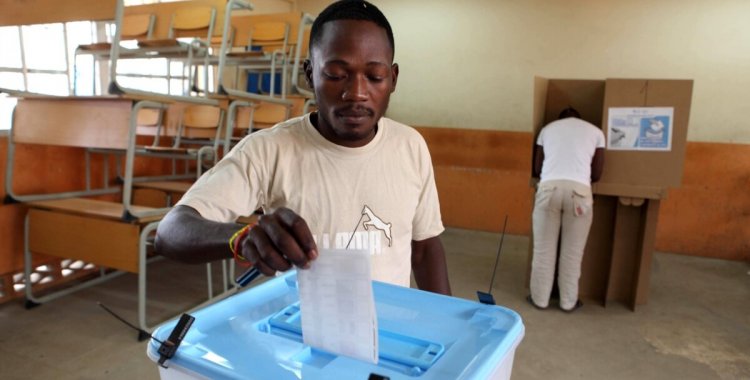"The first post-[Eduardo] dos Santos elections will test claims for a government to make progress in political and press freedom. Angola's political and governance direction will be determined by the quality of this electoral process," estimates the report. African Union Council for Peace and Security (CPS), released this Tuesday by the Institute for Security Studies (ISS) in South Africa.
The Angolan presidential elections should be marked by the re-candidacy for a second term of President João Lourenço, who took power in 2017 from José Eduardo dos Santos, in power for almost four decades, and "was part of a succession plan of the Popular Movement for the Libertação de Angola (MPLA)", which established him as the candidate of the ruling party, recalls the report by the CPS, which is the permanent body of the African Union (AU) for the prevention, management and resolution of conflicts.
"However, the elections were marked by irregularities, which cast doubts on the integrity of the results, thus initially depriving them of legitimacy", considers the Council.
The report recognizes that João Lourenço was "praised" for "reformist endeavors, particularly around the fight against corruption" and for the "relative opening of the political space", but stresses that the current head of state "has used reforms to consolidate power".
"Economic recession, poverty and inequality have been the country's biggest concerns. [João] Lourenço's candidacy for re-election will likely be a referendum that will assess governance during his first term. It will also be another sure test of the electoral process. of the country, which has largely favored the MPLA in power for several decades," points out the CPS.
Africa "may face many challenges in 2022", as "existing and emerging crises and conflicts continue to hit the continent and affect its development prospects", the report says.
The context defined by the CPS is particularly bleak. "African countries need to do much more to reverse current trends in conflict and crisis. Given the regional repercussions of many issues and the transnational nature of some, regional bodies and the AU must act with more determination and urgency. , several countries will hold elections, which could increase tensions. The warnings of political violence cannot be ignored", he stresses.
Three major elections are planned on the continent, in Angola and Kenya in August 2022, and in Senegal in January and July. "These elections will influence the political trajectories of countries and are likely to increase tensions and violence, particularly in Kenya and Senegal", according to the same text.
In the case of Kenya, the 2022 elections "are destined to be highly contested and contested, with electoral violence to be expected."
The current Kenyan President, Uhuru Kenyatta, is constitutionally barred from running for a third term, so he sought to change the structure of the Executive and tried to create a large coalition united in the Initiative to Build Bridges (BBI, its acronym in English).
The BBI proposed, through a constitutional amendment, to create new posts, including those of prime minister and deputy minister, to make ministers members of parliament and assign a post to the leader of the opposition.
The Kenya Supreme Court, however, rejected the proposal, which it found unconstitutional. Kenyatta's departure leaves room for competition, which former Vice President William Ruto and long-time opposition leader Raila Odinga appear on the front lines to fill.
This will be a turning point in both political careers, and probably Odinga's last chance to reach the presidency of the country.
"The outcome of the elections, however, will largely be decided by the fate of the votes of Kenyatta's constituency, which will want to harness its influence in favor of a particular candidate."
The BBI collapse has removed the possibility of an executive with broad influence, and Kenyatta has seen his political position strengthened, the Council considers.
As for Senegal, which is due to hold local and legislative elections in 2022, three years after President Macky Sall was re-elected for a second term in a suffrage that barred two top candidates from running on suspicion of politically motivated criminal convictions, "tensions prevail , even resulting in riots in March 2021, triggered by the arrest of the main opposition figure, Ousmane Sonko," the report points out.
"The elections will also take place two years before the next presidential ones, which Sall is said to be considering running for a third term. The perceived judicial disqualification of political opponents, electoral reforms and other problematic constitutional reforms, and economic difficulties exacerbated by covid-19, will test the Sall government and Senegal's political stability," warns the African Union Council for Peace and Security.







